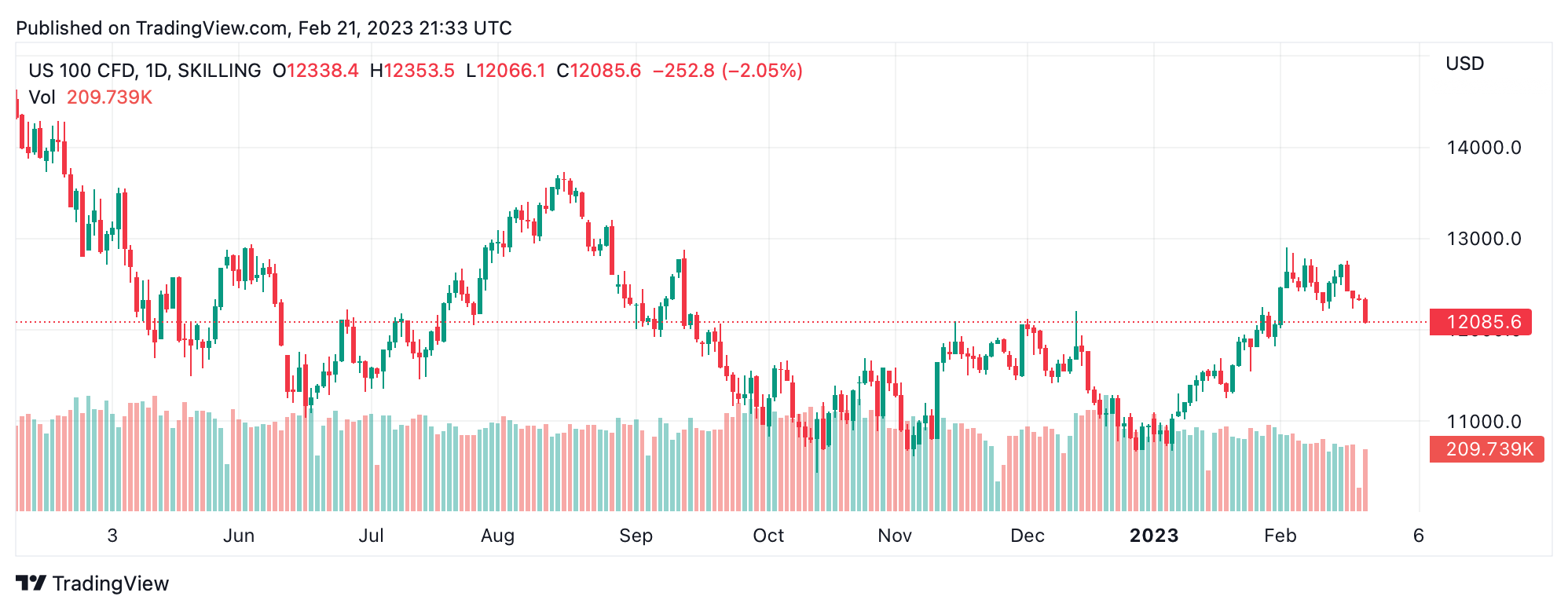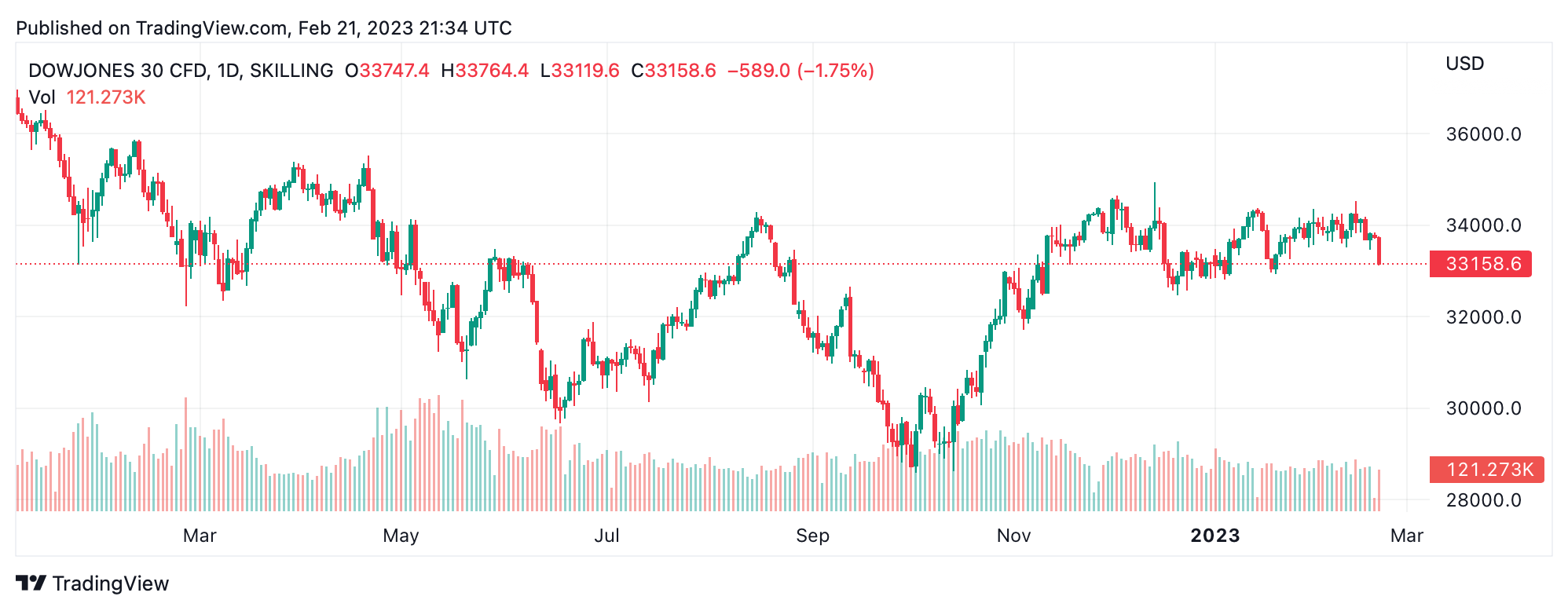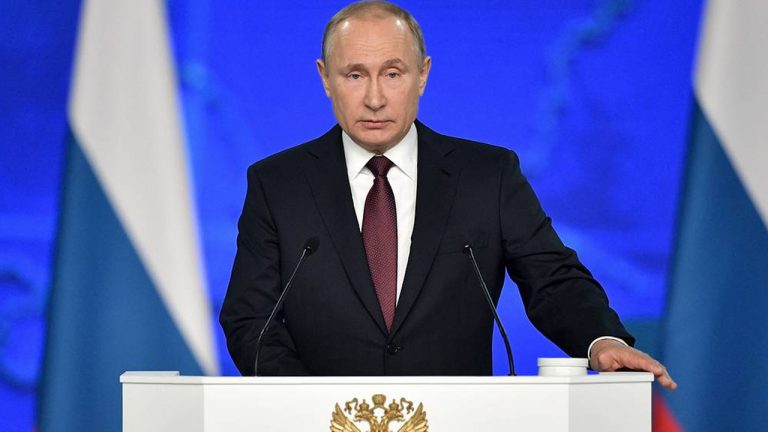On Tuesday, all four major U.S. benchmark stock indexes fell as real estate data showed home sales dropped by 0.7% last month and Russian President Vladimir Putin suspended the nuclear arms control treaty with the United States. Additionally, the chief U.S. equity strategist at Morgan Stanley said the stock market is in a “death zone” and could drop another 26%.
Investor Fears of a Prolonged Recession Swell, U.S. Tensions With Russia Further Disrupt Global Markets
On Tuesday, markets traded lower compared to the previous day as investors have been shaken by the current macroeconomic backdrop. The National Association of Realtors (NAR) published a report on Tuesday showing the U.S. real estate market weakening, with home sales slipping 0.7% in January. The price of gold and silver as well as the crypto economy dropped, with the latter shedding 1.37% over the last 24 hours, down to $1.11 trillion. Stocks followed the same pattern, with all four major stock indexes (DJI, GSPC, IXIC, RUT) dipping 1.9% to 2.79% lower.

The NAR report, coupled with the continued elevated inflation, has investors worried that the U.S. Federal Reserve will continue to hike rates, and some think it could crush the U.S. economy. Moreover, tensions between the United States and Russia rose significantly on Tuesday, and many believe we are on the brink of a third World War. Russian president Vladimir Putin suspended the New START Nuclear Treaty and put missiles on combat readiness.

Putin said that the West partook in establishing a “despicable method of deceit” when the U.S. and other nations got involved with Syria, Libya, and Iraq. “Russia suspends its participation in the New START treaty,” Putin stressed at the national event. The nuclear treaty, signed by former presidents Dmitry Medvedev and Barack Obama in 2010, was meant to prevent nuclear testing and war. Putin’s speech isn’t sitting well with global investors, as the Ukraine-Russia conflict has dampened the global economy.
Morgan Stanley Strategist Warns of ‘Death Zone’ for U.S. Stock Market
Furthermore, Morgan Stanley strategists do not believe the U.S. central bank and chair Jerome Powell will pivot this year. The chief U.S. equity strategist at Morgan Stanley, Michael Wilson, has warned that the stock market is now in the “death zone.” Wilson detailed that the “death zone” name is a common term in mountaineering, where people who climb to extremely high altitudes lose oxygen. Wilson believes equity markets are in a similar death zone, and he predicts the S&P 500 (GSPC) could slide 3,000 points in a quick period of time.
“Many fatalities in high-altitude mountaineering have been caused by the death zone, either directly through loss of vital functions, or indirectly by wrong decisions made under stress or physical weakening that lead to accidents,” Wilson explained in his note to investors. “This is a perfect analogy for where equity investors find themselves today, and quite frankly, where they’ve been many times over the past decade.”
Between the economy’s rising inflation, the U.S. real estate slump, and rising tensions with other nations, the issues in the U.S. keep mounting. The headwinds from the Fed’s higher interest rates and the cost of living rising every day for average Americans have slowed the country’s growth, and many suspect a long recession is due. Furthermore, a recent study shows that 55% of Americans believe they will lose everything if a recession hits the United States. A majority of the study respondents (three out of four) suspect a recession will come to fruition this year.
What do you think about the current state of the stock market and the mounting economic concerns in the United States? Do you agree with the Morgan Stanley strategist’s warning about the ‘death zone,’ or do you have a more optimistic outlook for the future of the U.S. economy? Share your thoughts in the comments section below.














